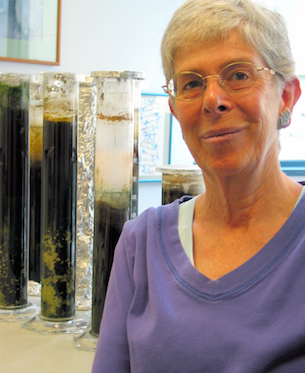
Professor Emerita Sydney Kustu, a distinguished faculty member in UC Berkeley’s Department of Plant and Microbial Biology, died in Berkeley, Calif., on March 18. She was 71 years old. She was a member of the National Academy of Sciences and was instrumental in the revitalization of the field of microbiology on the Berkeley campus.
“Kustu has made major contributions to our understanding of the regulation of gene expression,” a statement read during her induction into the National Academy of Sciences said. “Her work has led to the identification of the novel mechanisms responsible for the regulated expression of the enzymes and transport systems involved in nitrogen metabolism in bacteria.”
Sydney Govons Kustu was born in 1943 in Baltimore, Md. She earned a B.A. at Harvard University and a Ph.D. in Biochemistry from UC Davis, and did post-doctoral work at UC Berkeley until 1973, when she was appointed to the UC Davis Bacteriology faculty. She remained at UC Davis until 1986, when she joined what was then Berkeley’s Microbiology and Immunology faculty, with a dual appointment in Plant Pathology. She retired in 2010.
In addition to being a National Academy member, Kustu garnered a large number of other awards during her career at Berkeley. She was a fellow of the American Academy of Arts and Sciences, the American Association for the Advancement of Science, and the American Academy of Microbiology. She also held a number of national and international professorships, including a prestigious Gauss Professorship at University of Göttingen. For more than a decade, her work was supported by National Institutes of Health MERIT Awards.
“Professor Kustu is an eminent scholar and one of the world’s leading microbiologists,” her longtime colleague Bob B. Buchanan, professor emeritus of Plant and Microbial Biology, wrote in a letter describing her work. “She added a new dimension to microbiology and potentially to medicine.”
Kustu is best known for her seminal contributions on the responses of intestinal bacteria to nutrient limitations, particularly nitrogen. Buchanan enumerated her extraordinary contributions in this area of basic science.
“Sydney Kustu made order out of the chaotic complexity of the genetics of the system,” he wrote. “She identified the relevant genes and showed how they are regulated by nitrogen-containing compounds in the environment. She then concentrated on one of these transcriptional activators, NtrC, and proceeded to make a number of discoveries that increased our understanding of transcription in general.” Professor Kustu made other seminal contributions related to her nitrogen studies including her discovery of the Rut pathway for pyrimidine degradation in E. coli.
Kustu was a generous mentor, giving enormous amounts of her time and energy to facilitate the publication of key work of younger colleagues. She was also particularly beloved by undergraduate students who worked in the Department of Plant and Microbial Biology. Throughout her career, Kustu was a dedicated teacher at both the undergraduate and graduate levels. Her use of the Socratic method for teaching concepts in microbiology was particularly effective and inspiring.
She is survived by her son, Saul Kustu of Aptos, and her sisters, Roberta Glassman of Calabasas and Marica Govons of Belmont Shores–all in California.
“Berkeley’s Department of Plant and Microbial Biology and the College of Natural Resources both extend our most sincere and heartfelt sympathies to Professor Kustu’s family,” said CNR Dean J. Keith Gilless. “Her dedication to her work and her students was exemplary, and she will be dearly missed.”
The Kustu family gratefully suggests that donations in Sydney Kustu’s honor may be made to Planned Parenthood. The UC Berkeley Department of Plant and Microbial Biology is planning an event to honor Kustu's life and her many contributions to the University of California. It will be held on Friday, May 2, at 4 p.m. in the Toll Room of the Alumni House, on the Berkeley campus.
-Ann Brody Guy
